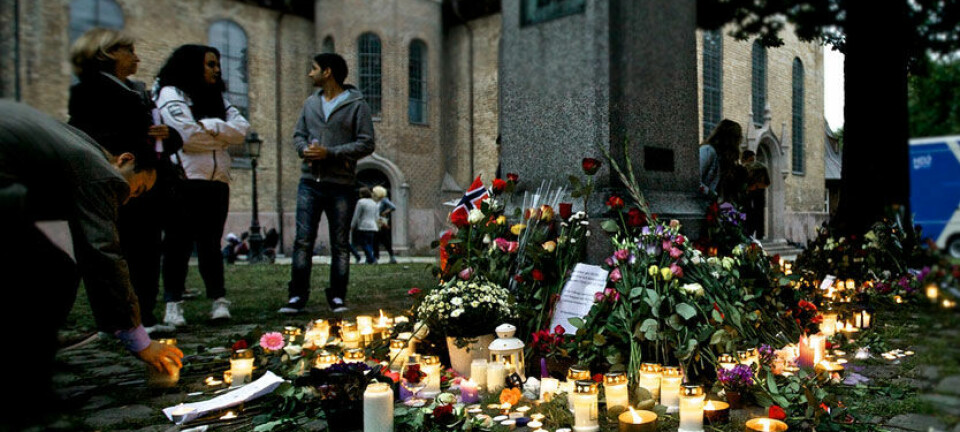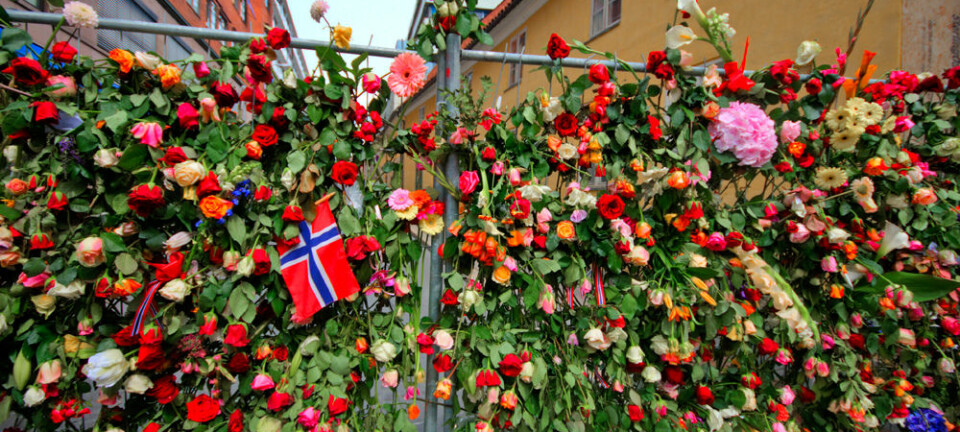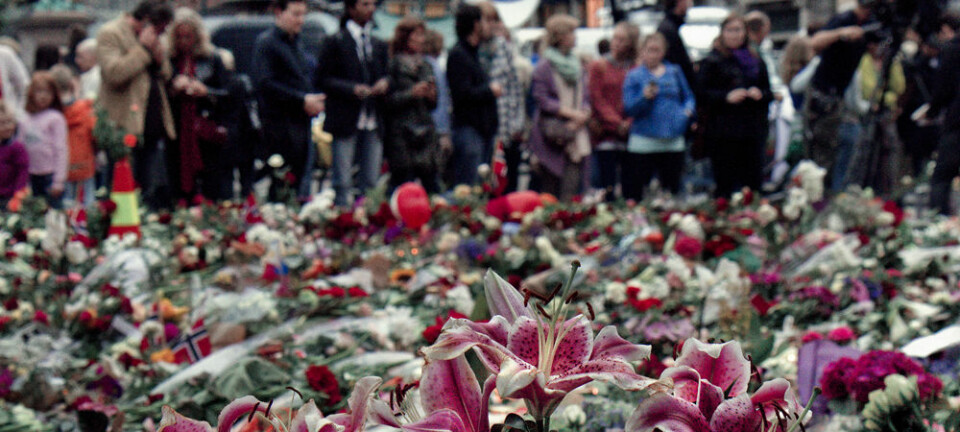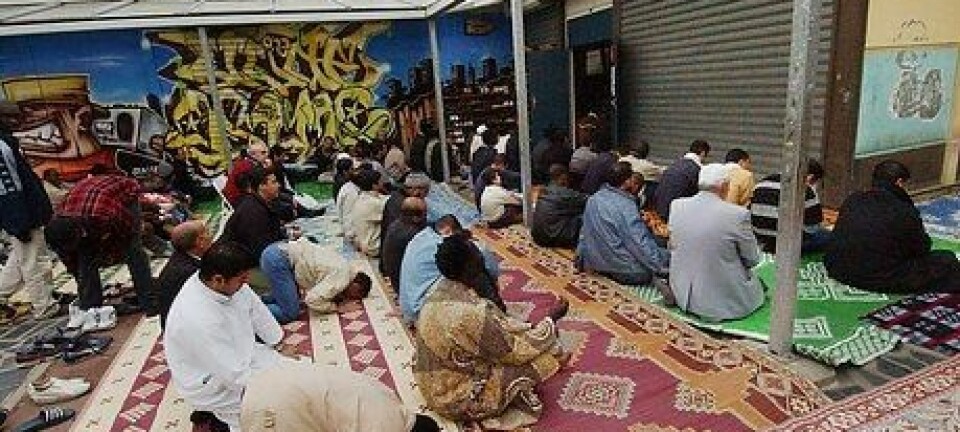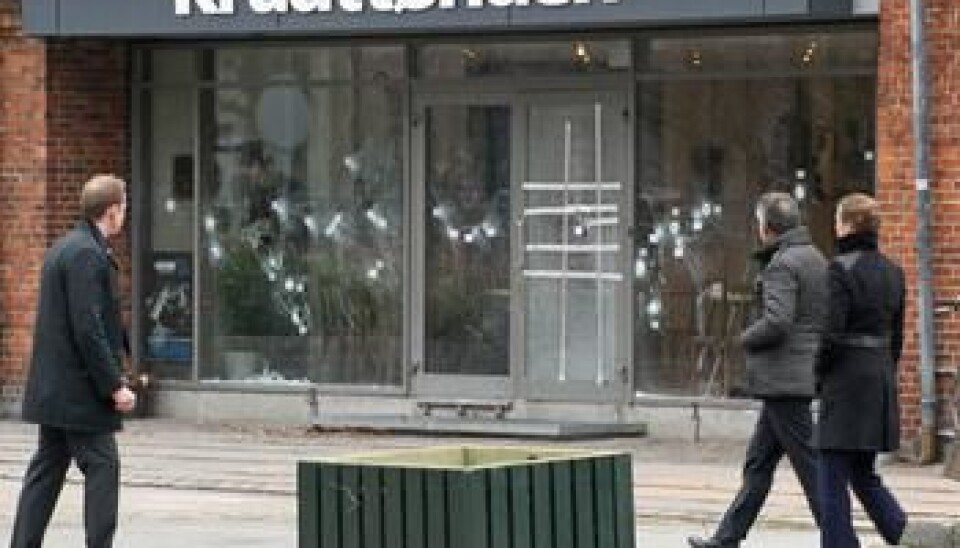
Opinion: "Denmark must not succumb to polarisation in the wake of Copenhagen attacks"
Nuances have it tough in times of polarisation and we must be careful not to fall back on prejudice and profiling, writes philosophy Professor Vincent F. Hendricks.
Copenhagen has been left reeling from a series of violent attacks on February 14 and 15. A young man armed with an automatic weapon and other guns killed two civilians and injured five police officers on two separate occasions only hours apart in downtown Copenhagen.
One shooting took place at a free speech debate hosted by a controversial Swedish cartoonist and the other in front of a synagogue. Within 13 hours the police had tracked down the Danish-born 22-year-old male of Arabic descent. When they moved to arrest him he opened fire and was subsequently shot dead by the police.
The attacks come just weeks after the shootings in Paris that have left so many people questioning how we move forward. Life has certainly changed for many over the past few weeks.
Profiles
As a black person, a stream of thoughts runs through my head when I travel these days. Against a soundtrack of news of elevated terror alerts, I hit speed bumps -– at the check-in and through security in Copenhagen, at immigration when I arrive in Brussels, at armed police checkpoints near potential terror targets.
There are so many people and so many speed bumps. But I can’t get rid of this nagging idea that travelling around is just a bit more difficult for some than others right now.
It’s an involuntarily feeling and I’m annoyed even having it at all. I want to see individuals first and then gender, religion, political or sexual orientation as secondary qualities – not as profiling parameters. It’s by fulfilling the criteria of one such profile that I often get stopped in my car.
Sometimes I have been greeted with a rather intransigent tone of voice and appertaining suspicion by police officers. I have been forced to explain myself at length and seen the suspicion only abating once I have revealed my ID, that shows I am a professor.
It’s the same profile that got my son –- who in passing may look like everything in the “middle”: Middle Eastern, Middle European, Middle American –- kicked out of a beach resort in Jordan, the lifeguards convinced he was a member of the indigenous population and thus unwelcome amongst the guests. My ethnic Danish wife has travelled the continents with her ethnic Danish kids and never been stopped. But since she married me she has had to start factoring in speed bumps, whether the trip is to Sharm Al Sheikh, Abu Dhabi, Norway, New Orleans or returning home to Copenhagen.
Classifications
As we recover from these attacks and those in Paris and look on while far-right groups demonstrate in Germany about the “Islamification” of Europe, profiling can easily creep in. Nuances have a tough time in times of polarisation but it is exactly now that nuances have to be observed in concert with reflection, enlightenment, carefully considered action and mutual respect between individuals.
Classification and arbitrary profiling generate preconceived ideas both ways. I have to be careful not to make the same profiling mistake when I meet strangers. I have to be careful not to get “racially annoyed” when having my luggage examined at customs or not feeling wronged again when pulled over by the police.
I may be encouraged to catalogue some people in a certain way, especially if I feel unfairly or iniquitously treated. I may start to develop fixed ideas about the people who stop me and question me. I might use race, gender, culture or politics as both an explanation and a frontline defence. That’s the first step to prejudice. And I should probably consider that the people I profile do the same. We are not that different as humans.
My father came as a black American to Denmark in 1963. He left with segregation and seats at the back of the bus fresh in his mind. He experienced Denmark and Europe as places where the individual comes first, not the colour of their skin. Yet a Somali cabdriver around 30 years of age recently told me that he had, while growing up, friends from the entire ethnic and religious spectrum. Now he was just considered a Muslim.
Where do we go from here?
In 2015 we should not return to the religious feuds of the days of old. Much blood has been spilt over religion and the same goes for the other parameters of profiling from race over gender to culture. Recently a Danish newspaper explained eloquently and poetically why certain “young men without much to lose” take to terror with reference to the recent attacks in France but which also seem befitting of the young man responsible for the horrifying Copenhagen shootings:
One world is less than two by a measure of quantity, but two is not better than one by a measure of quality. They are just different things. One may indeed get wise and open minded at the intersection of religions, cultures, and nationalities but it requires both worlds wanting to meet.
There is a fine line between not sounding like the victim, not sounding like the aggressor, not sounding like the prosecutor, not sounding like counsel, not provoking further polarisation but at the same time pointing to differences without classifying, being informative without lecturing, being hopeful without sounding naive.
One thing is for certain: a sense of belonging is always what hits you when you come home from somewhere. You are awaited and welcome. We don’t want to get to a place where you are awaited but unwelcome.
This article was originally published on The Conversation. Read the original article here.

Vincent F Hendricks does not work for, consult to, own shares in or receive funding from any company or organisation that would benefit from this article, and has no relevant affiliations.
![]()
